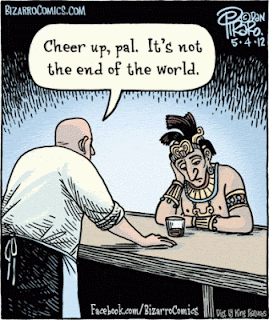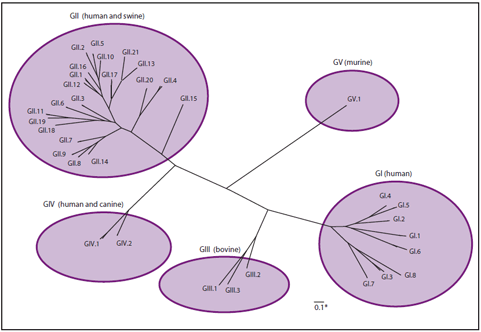 To Christians, one of the great events in the life of Jesus was the 'triumphal entry into Jerusalem'. One wonders then why the author of the 'Gospel' of Matthew made Jesus look like a figure of fun - almost some sort of clown or village idiot - in his account of the story.
To Christians, one of the great events in the life of Jesus was the 'triumphal entry into Jerusalem'. One wonders then why the author of the 'Gospel' of Matthew made Jesus look like a figure of fun - almost some sort of clown or village idiot - in his account of the story.Firstly, let's see how the other 'Gospel' authors deal with it:
And when they came nigh to Jerusalem, unto Bethphage and Bethany, at the mount of Olives, he sendeth forth two of his disciples, And saith unto them, Go your way into the village over against you: and as soon as ye be entered into it, ye shall find a colt tied, whereon never man sat; loose him, and bring him. And if any man say unto you, Why do ye this? say ye that the Lord hath need of him; and straightway he will send him hither.
And they went their way, and found the colt tied by the door without in a place where two ways met; and they loose him. And certain of them that stood there said unto them, What do ye, loosing the colt? And they said unto them even as Jesus had commanded: and they let them go.
And they brought the colt to Jesus, and cast their garments on him; and he sat upon him. And many spread their garments in the way: and others cut down branches off the trees, and strawed them in the way.
And they that went before, and they that followed, cried, saying, Hosanna; Blessed is he that cometh in the name of the Lord: Blessed be the kingdom of our father David, that cometh in the name of the Lord: Hosanna in the highest.
And Jesus entered into Jerusalem, and into the temple: and when he had looked round about upon all things, and now the eventide was come, he went out unto Bethany with the twelve.
Mark 11:1-11
So here Jesus sends two of his men to take a colt and then rides it to Jerusalem. We aren't told if the owner got his colt back.
And it came to pass, when he was come nigh to Bethphage and Bethany, at the mount called the mount of Olives, he sent two of his disciples, Saying, Go ye into the village over against you; in the which at your entering ye shall find a colt tied, whereon yet never man sat: loose him, and bring him hither. And if any man ask you, Why do ye loose him? thus shall ye say unto him, Because the Lord hath need of him.
And they that were sent went their way, and found even as he had said unto them. And as they were loosing the colt, the owners thereof said unto them, Why loose ye the colt? And they said, The Lord hath need of him.
And they brought him to Jesus: and they cast their garments upon the colt, and they set Jesus thereon. And as he went, they spread their clothes in the way.
Luke 19:29-36
In this version, an almost verbatim copy of Mark's except that the owner of the colt lets them take it.
On the next day much people that were come to the feast, when they heard that Jesus was coming to Jerusalem, Took branches of palm trees, and went forth to meet him, and cried, Hosanna: Blessed is the King of Israel that cometh in the name of the Lord.
And Jesus, when he had found a young ass, sat thereon; as it is written, Fear not, daughter of Sion: behold, thy King cometh, sitting on an ass's colt.
These things understood not his disciples at the first: but when Jesus was glorified, then remembered they that these things were written of him, and that they had done these things unto him.
John 12:12-16
In this version, Jesus found the colt himself and took it. The interesting thing in this account is the allusion to a prophecy foretelling this donkey ride.
Where is this 'prophecy'? We have to delve into Zechariah to find anything which could be construed as a donkey-riding prophecy:
Rejoice greatly, O daughter of Zion; shout, O daughter of Jerusalem: behold, thy King cometh unto thee: he is just, and having salvation; lowly, and riding upon an ass, and upon a colt the foal of an ass.
Zechariah 9:9
Now, I'm not one to knock the Bible, as readers will know, but this verse looks a bit strange to me. To the untutored eye, it looks like Zechariah is saying this King will be riding on an ass and a colt of an ass at the same time, making an ass of himself, or is it saying that he will ride first on an ass then on the colt of an ass? Grammatically, it looks like the former is the case: the King will be riding on both at the same time, but, allowing for the frequent translation errors in the Bible, it could be the latter.
But, so I believe Biblical scholars say, what we have here is an obscure ancient Hebrew poetic device known as "synonymous parallelism" whereby the second of two lines repeats the first in different words to emphasise it. So, what Zechariah is saying is that the King will be riding on the colt of an ass.
Obviously the author of John either understood this literary device, or at least worked out that Jesus wouldn't actually make a laughing stock of himself. Luke and Mark either don't know about any prophesy and are just repeating something they're copying from an earlier source, or they've come to the same conclusion as the author of John.
Now let's see what the author of Matthew does with the story. Remember, as I showed in "Christmas! Which Christmas?" and "Which Genealogy of Jesus?", this author of the Bible often stretches credulity beyond breaking point to show that just about everything about Jesus is prophesied in Jewish sacred texts, almost as though he was afraid there might be some doubt about Jesus being the Jewish Messiah.
And when they drew nigh unto Jerusalem, and were come to Bethphage, unto the mount of Olives, then sent Jesus two disciples, Saying unto them, Go into the village over against you, and straightway ye shall find an ass tied, and a colt with her: loose them, and bring them unto me. And if any man say ought unto you, ye shall say, The Lord hath need of them; and straightway he will send them.
All this was done, that it might be fulfilled which was spoken by the prophet, saying, Tell ye the daughter of Sion, Behold, thy King cometh unto thee, meek, and sitting upon an ass, and a colt the foal of an ass.
And the disciples went, and did as Jesus commanded them, And brought the ass, and the colt, and put on them their clothes, and they set him thereon.
And a very great multitude spread their garments in the way; others cut down branches from the trees, and strawed them in the way. And the multitudes that went before, and that followed, cried, saying, Hosanna to the son of David: Blessed is he that cometh in the name of the Lord; Hosanna in the highest.
And when he was come into Jerusalem, all the city was moved, saying, Who is this? [My emphasis]
Matthew 21:1-10
I don't know about you but I think I might fall down laughing watching some chump trying to ride two donkeys at the same time, but again 'Matthew' seems more interested in showing that Jesus fulfilled prophesies than in presenting him as, frankly, other than a bit of a twerp.
The author of Matthew has clearly not understood the Hebrew, or whatever Greek translation he was using, and has made an ass of himself in his desperation to make the story he is telling fit the text he hasn't understood.
It's little things like this that make the Bible such a hilarious book to read. Christians really should try it sometime.






















